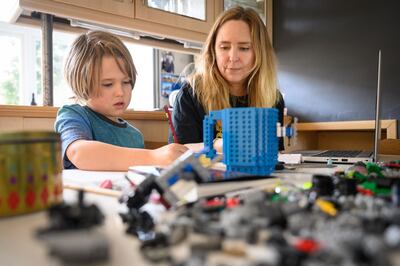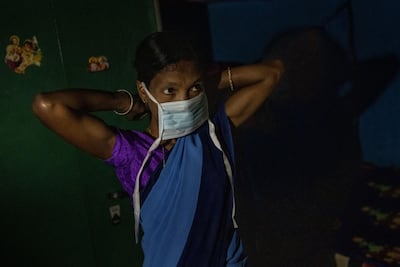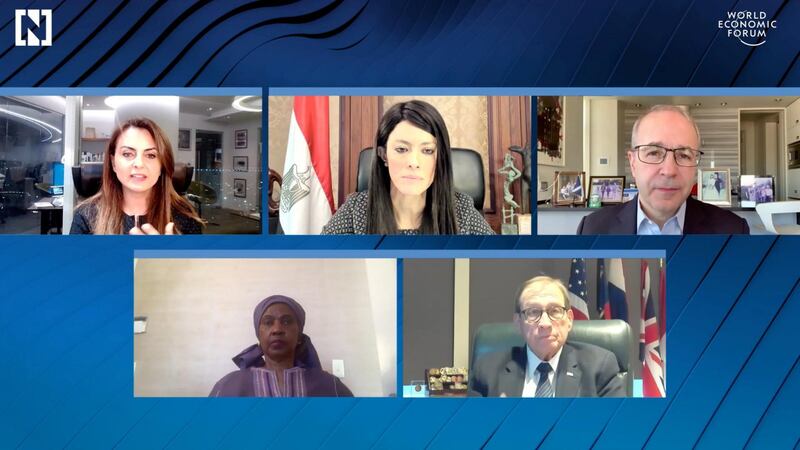It will take years to fully assess the impact of Covid-19 on global health systems, societies, economies and governments. However, in a number of areas, the devastation brought about by the pandemic is already clear. In addition to the death of over 2 million people because of the novel coronavirus, and the immense loss that their families will have to contend with, there are societal ramifications that must be recognised and addressed. Around the world, women are witnessing tangible regression in the areas of hard-won progress they made over the past few years.
From bearing the larger burden of home-schooling to facing elevated levels of job losses, women have suffered throughout the past year. And the facts are evident. While women represent 39 per cent of global employment, they have accounted for 54 per cent of overall job losses during the pandemic, according to the management consulting firm McKinsey. The World Economic Forum says that many women are working a “double-double shift”, taking on at least an extra 20 hours of work each week to juggle the demands made real by Covid-19. Mothers have been spending an average of 1.7 hours more per day on housework than fathers and provide 70 per cent of child care during business hours, according to the Forum. The international organisation has been measuring gender disparity for years in its annual “Global Gender Gap” report. In its 2020 report, it predicted that the world would need 99.5 years to reach gender parity. This was before the pandemic hit.
There is no doubt that the vast majority of women find great joy and satisfaction if they can help their families. UN Women, the UN’s agency for women’s advancement, estimates that women’s unpaid contributions to health care are equal to 2.35 per cent of global GDP, or almost $1.5 trillion. And while money and percentages are a good way of measuring how significant this contribution is, no amount of remuneration can equal the love of a mother, a wife, a sister or a daughter when providing care to their families. That is provided unconditionally. However, the reality is that the long-term consequences of this care could lead to career regression, increased psychological pressure and a greater financial burden.

Oxfam has called Covid-19 the "inequality virus", saying that the world's poor have been disproportionately affected by this pandemic. This is true for both men and women. However, given that women are more likely to be in low-paying jobs and on flexible contracts, they are more adversely impacted. In its 2020 report on employment, the International Labour Organisation said that losses in income were larger for young workers, women, the self-employed and low and medium-skilled workers.
Moreover, while the world is witnessing a digital revolution with more aspects of people’s lives moving online, a proportion of men and women are being left out as they do not have access to the internet. Women have 17 per cent less access to the internet globally. One of the reasons that women are particularly hurt is that they make up a large proportion of the informal work sector, with 760 million of them in informal employment. Informal workers experienced a 60 per cent fall in income in the first month of the pandemic and much of that income has not recovered.
In her comments during a session I moderated during this week's "Davos Agenda", Egypt's Minister of International Co-operation Rania Al-Mashat stressed the importance of governments taking tangible measures to support women at this time, including legislation that helps mothers care for children under 12 years during this period. Undersecretary-General and Executive Director of UN Women Phumzile Mlambo-Ngcuka echoed that sentiment, stressing the need for tangible measures to solidify women's gains in the workforce and mitigate against the fallout from Covid-19.
We must keep in mind the toll that the pandemic will have on health workers for years to come. According to UN Women, 70 per cent of health workers and first responders around the world are women. And the gender pay gap in the health sector is estimated to be at 28 per cent – meaning that women are bearing a heightened financial, emotional and health burden.

The issue of women in the workforce was discussed in a number of sessions during the Forum’s annual ”Davos Agenda” meeting, which has been held in its entirety virtually. However, the competing demands on policy makers may mean that women’s rights do not get the attention they deserve. They must.
Much has been said of the need to plan for a more equitable society with the emergence from the pandemic, and in order to do so, women have to be at the heart of that planning. Three priorities should be set towards that end. Firstly, providing the infrastructure needed for mothers to progress in the work place, which includes flexible hours to allow for family care and providing childcare facilities. Secondly, a continued effort to tackle gender inequality in pay across the board and securing all workers rights. Thirdly, and perhaps most importantly, protecting women in society and challenging those who seek to use conditions created by the pandemic as a tool of control to hold women back. That is the one fallout from this health crisis that should not be allowed.
Mina Al-Oraibi is editor-in-chief of The National






